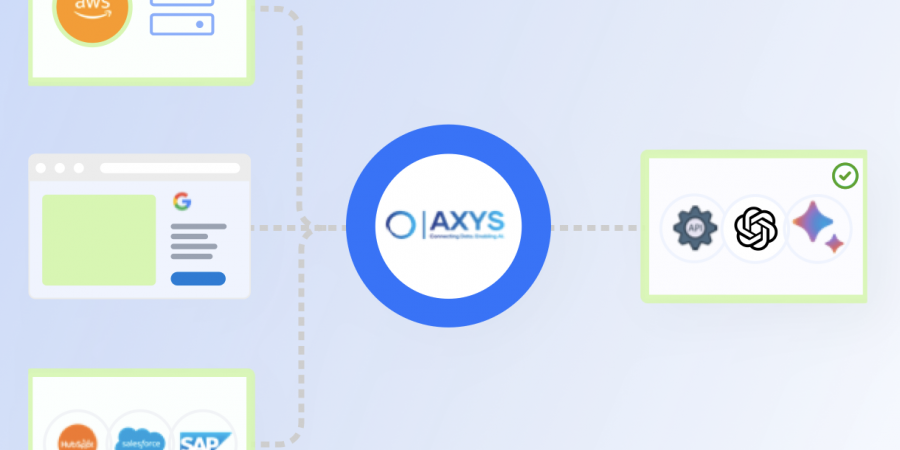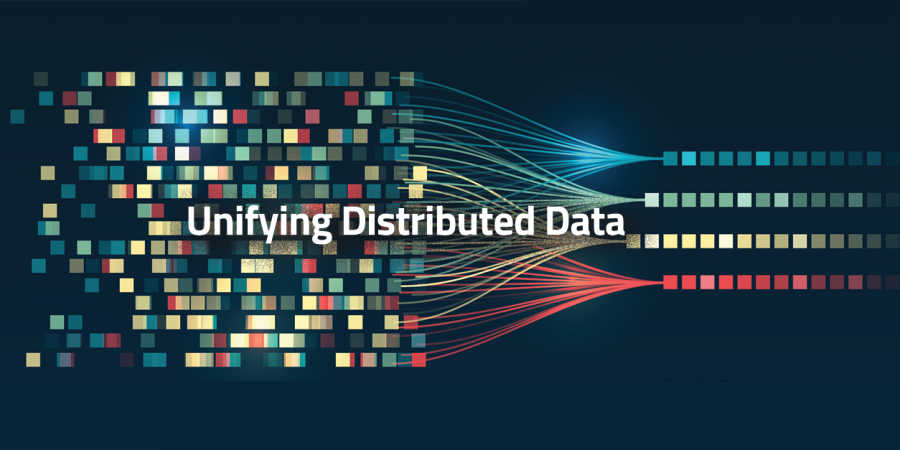Empowering Users: The Game-Changing Ease of AXYS
In a world where data is king, the ability to manage and leverage it easily is a game-changer for businesses. That’s precisely where AXYS steps in, empowering users with its user-friendly interface that revolutionizes how data is sourced, mapped, and utilized. Intuitive Control for Admins At the heart of AXYS lies a profound understanding of
Read More
Embracing New Standards with AXYS: Navigating the Future of Data Management
In the ever-evolving landscape of data management, the norms are shifting. While still an industry standard, the traditional approach to data access via APIs confronts many challenges, especially when it comes to development costs, maintenance, and adapting to the dynamic nature of data for AI-enablement. This is where AXYS emerges as a beacon of innovation,
Read More
Simplified Data Unification: Changing the Speed of Business
In the rapidly evolving business world, time is not just money; it’s the currency of success. As companies navigate through immense amounts of data and eventually utilize AI, the need for speed and efficiency in data management has never been more crucial. This is where the concept of Simplified Data Unification comes into play, especially
Read More
AXYS Platform: Eliminating Development Risks in Data Management
Introduction In today’s data-driven world, organizations are inundated with vast amounts of data from diverse sources. Making sense of this data, unifying it, and leveraging it for actionable insights has become a paramount concern for enterprises across various industries. Data management, however, is not without its challenges, and many organizations grapple with the complexities and
Read More
Discover the overlooked ROI of an enterprise data platform
Business organizations today rely heavily on big data to make decisions that are critical to the success of their operations. But in order for this data to be effective, companies must ensure that they have an enterprise data platform in place that can effectively capture, store, access, and analyze this information. To do so, investment
Read More
Common Use Cases of Data Fabric with Search
Data fabric is an architecture that combines two or more cloud vendors, on-premises environments, and hybrid/edge systems across multiple geographies to provide a unified view of data. It enables the storage, management, and movement of data among different types and from different sources. With modern data fabric, organizations have access to real-time analytics with reliable
Read More
Data Fabric 101: The Next Generation of Enterprise IT
Data Fabric Data Fabric has become the driving force behind enterprise IT, facilitating a new way of operating in the modern digital workplace. Modern data fabric provides businesses of all sizes to make use of their own data in near real-time without the need for complicated solutions. It is one technology that has enabled organizations
Read More
Axys a Unified Data Platform: Exclusive, Effortless Access
Unlock your company’s potential with Axys, the effortless unified data platform that streamlines your internal knowledge, enhances collaboration, and allows you to manage data efficiently—all while keeping costs down and maintaining compliance. Say goodbye to data chaos and hello to seamless insights with customizable integrations!
Top 5 Checklist for Enterprise Search and Data Fabric Integration
In today’s fast-paced business environment, businesses need to be able to quickly and easily access essential data. One of the most common solutions for optimizing data retrieval is through enterprise search and data fabric solutions. Here are five things your business should consider when selecting an enterprise search and data fabric solution: 1. Understand your
Read More
No-Code Data Modeling – Data Storage Services
Bring data and automation together with Axys Data Storage Service. Give your automation program the data capabilities it needs to thrive. Different teams require different sets of data from specific sources to build their daily reports. Sales, marketing, and product reports are generated from their data sources. However, these reports can be generated mostly from
Read More
Top 5 checklist for Enterprise Search
Top 5 Checklist for Enterprise Search Enterprise search technology is a complex and ever-changing realm. It is important to develop a top-five checklist when you are evaluating enterprise solutions for your organization. This list should include features, functionality, and cost considerations that will meet the specific needs of your enterprise, while also taking into account
Read More
The CDO’s Guide to Break Down Data Silos
A Chief Data Officer (CDO) manages and leverages an organization’s data assets. One important aspect of this role is to break down data silos, which refers to the isolation of data within different departments or systems. This includes ensuring the quality, accuracy, and security of data and ensuring that data is being used effectively to
Read More











